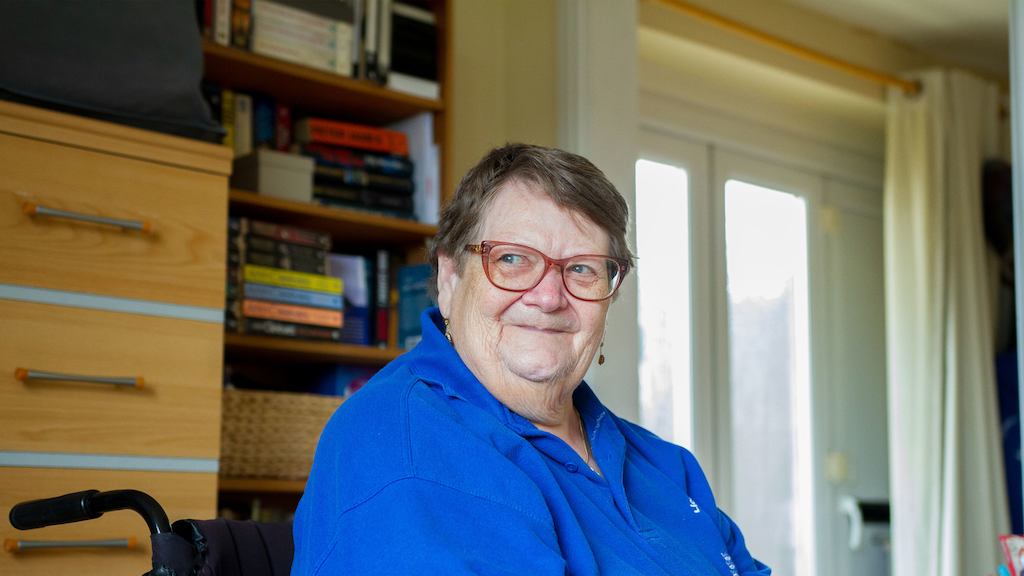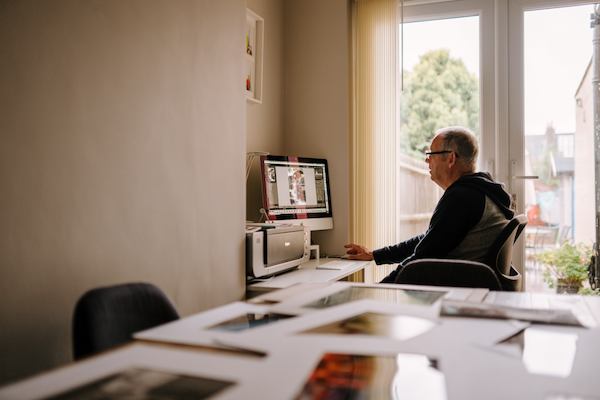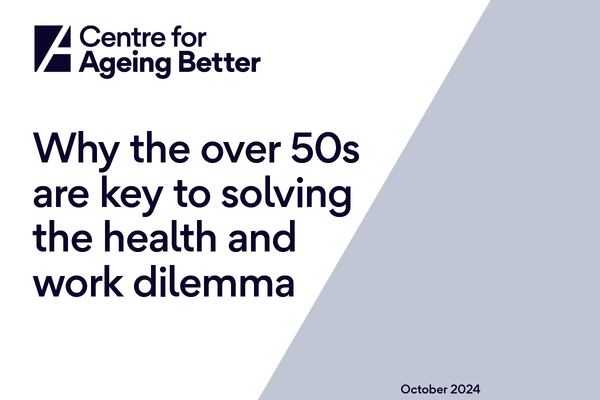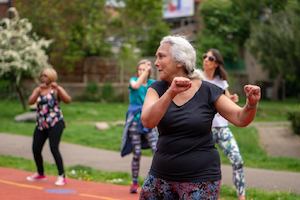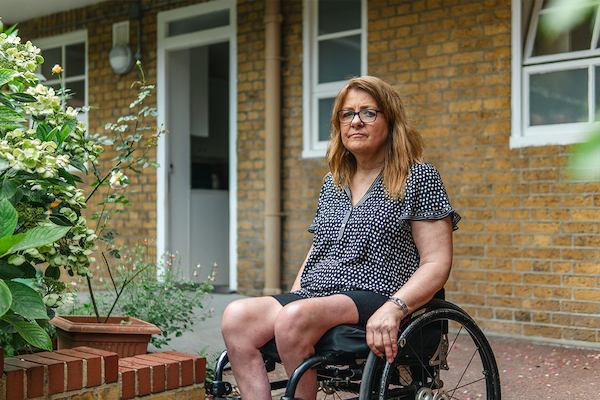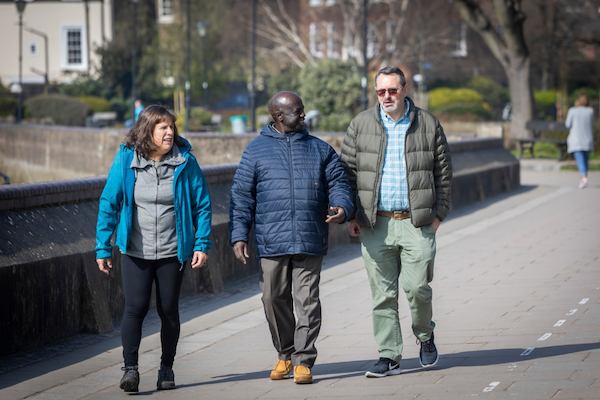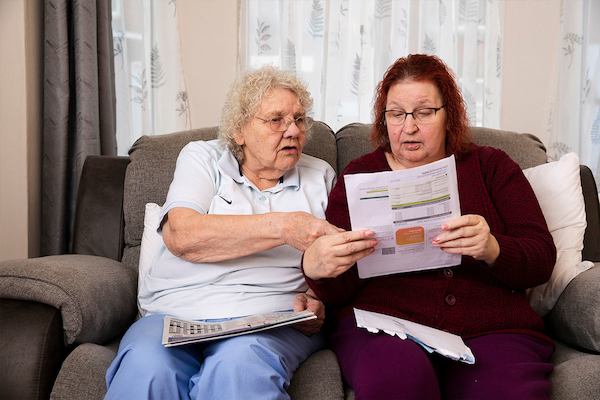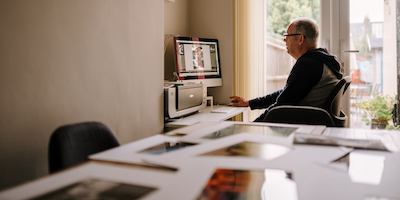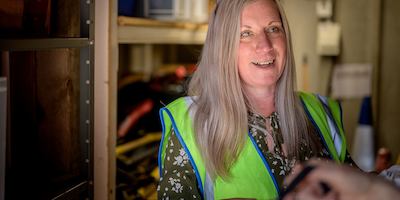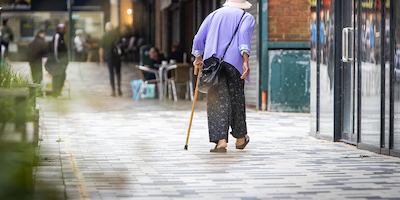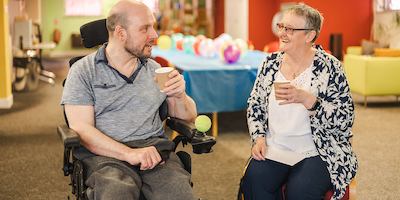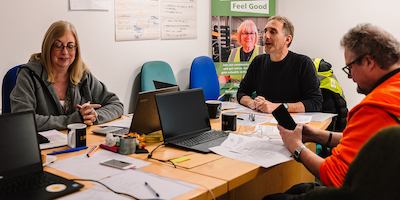The SDOW project puts Disabled older workers at the heart of the issue, bringing their voice and experience into the policy debate on how to raise employment rates and standards for the cohort.
The research project will be guided by an Experts by Experience Steering Group (EESG), who will shape the direction of the project and have decision making capacity.
Here members of the steering group discuss their own experiences of employment and what needs to change.
What motivated you to get involved in this project?
Rohina Ghafoor: I was alerted by the lead for Uncertain Futures project, a Manchester-based art project I was involved with which looks at the inequalities facing women over 50 relating to work and worklessness. Following my discussion with one of the staff at Centre for Aging Better and reading about it, I was motivated to share my lived experience as an older black disabled woman.
Anastasia Tempest: Ageing is part of everyone’s life and therefore it’s important to address what the difficulties people encounter as they get older such as age discrimination. I have taken part in research projects before, including projects exploring mental health.
Louise Okello: I am passionate about promoting the expertise of both Disabled and older people. I am determined that they should be given every opportunity to flourish, share and make use of their skills, experience and expertise to the benefit of all, feel valued and reach their full potential.
What do you hope will be the outcome from this project, either personally and/or more generally?
Rohina Ghafoor: Generally, I hope that I will have the opportunity to participate in conversations that highlight the continued challenges for older Disabled adults and be able to contribute in the relevant spaces for how we can create more accessible employment, support and services.
Anastasia Tempest: I hope the project will help improve the lives of older people, and leads to a society where there is greater recognition of what older people are still able to contribute to society, especially when they receive any support that they might require.
Louise Okello: I hope employers will begin to see the benefits of employing older people with disabilities and will become more aware that any barriers they perceive can be overcome.
I also hope society generally will learn about the positive contribution that can be made by older Disabled people and that the long-standing negative stereotyping of older Disabled people will eventually start to disappear.
What is the biggest challenge you have faced in finding employment or in the workplace, as a Disabled older worker?
Rohina Ghafoor: I found from a young age there are challenges to having an accessible and safe working environment. But as I got older, the challenges became more strenuous, rather than less.
Anastasia Tempest: In my experience, being a Disabled worker means facing the prospect of being discriminated against at any age. This is an ongoing problem that needs to stop.
Louise Okello: As a blind person I find many of the job application websites and application forms, as well as other work placed software packages, particularly difficult to navigate and complete - even though I am quite proficient in the use of speech software on both laptop and smartphone.
In your experience, what one thing could employers do that would make the biggest difference to you as a Disabled older worker?
Rohina Ghafoor: I am retired now but I would like to see in general employers committing fully without barriers to creating inclusive, accessible workspaces, and not just in a physical sense, but also accommodating sensory and neuro diversity with a person-centred approach.
Anastasia Tempest: Employers need to develop a positive attitude towards making reasonable adjustments. By being receptive to offering any support needed and going on disability awareness courses would be a start. Unfortunately, one cannot legislate for a bad attitude.
Louise Okello: Be proactive. My employers have always been very happy to provide support but don't always do so without my first having to ask, even though my needs don't change too much, and I have required the support previously. For example, sending presentations prior to events to check accessibility and give me a chance to read in advance. Simple things like remembering my guide dog is likely to need water, particularly in new surroundings where I might not know where to find water to fill up a portable bowl.
From your own experience, do you think there is progress in terms of support and reduced barriers in employment for Disabled older workers or do you think things are becoming more difficult?
Rohina Ghafoor: In my experience, I don’t believe we are seeing much progress. Things have not become easier.
Anastasia Tempest: Things have become more difficult, because of the economic climate. Many employers may wrongly believe that a Disabled older worker would require more support and so have become more reluctant to employ them.
Louise Okello: Personally, I have a good experience of employment but can imagine that increasingly complex and demanding recruitment practices would be very intimidating for people, especially if they are returning to work after a long break.
How well do you feel the voices and experiences of Disabled older workers are listened to in the workplace and with employment support currently?
Rohina Ghafoor: I don’t think voices are fully heard or different perspectives taken into account. Intersectionality is important as I still find sometimes on local networks, I am the only black Disabled adult.
Sometimes I experience barriers from organisations that should be helping us because they are more focussed on politics rather than presenting diverse voices, or because they lack a person-centred approach or because they are not prepared to hold accountable those that fail to meet their obligations to Disabled people.
Anastasia Tempest: I don’t believe the voices and experiences of older Disabled workers are represented in the workplace. Their absence speaks volumes.
Louise Okello: There is certainly lots more talk than there ever was about inclusivity in the workplace with the establishment of things like support staff networks. I am not convinced however that there are many employers who would be able to demonstrate the actions they have taken, having listened to the voices of their people, to improve the lot of older disabled workers or to promote the benefits they bring to their organisations. I believe there is some way still to go.
